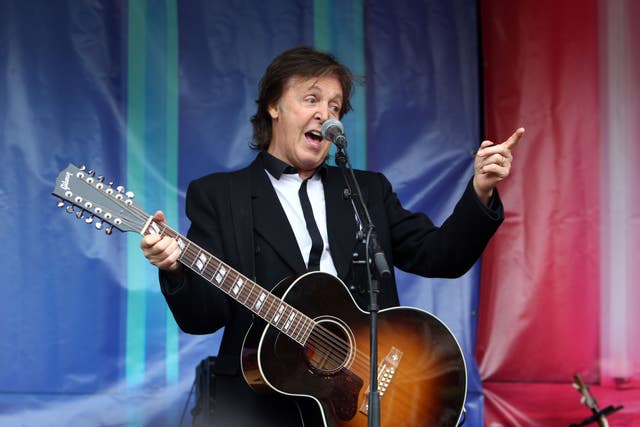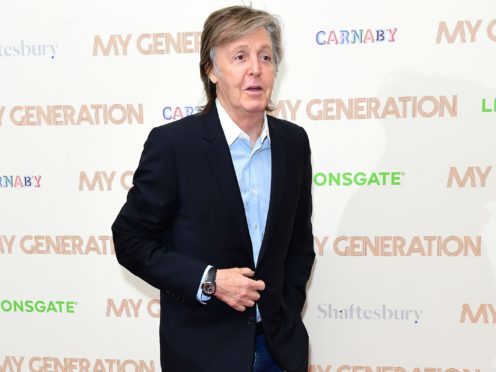MEPs have voted to reject a proposed overhaul of EU copyright law which had received the support of high-profile musicians and the creative industries, and condemnation from large online technology companies.
The European Parliament voted 318 to 278 against a committee proposal known as the EU Copyright Directive, in its current form, with 31 MEPs abstaining.
The decision comes despite artists including Sir Paul McCartney and opera signer Placido Domingo signing an open letter calling for politicians to back the change ahead of the vote.
One of the draft pieces of legislation, known as Article 13, proposed a new legal framework to govern how large online services pay songwriters and performers for the use of their work.
It suggested websites could continue to house music videos but must use technology to ensure copyrighted works are not available where a licence has not been agreed for its use.
We respect the decision by MEPs to have a plenary discussion on the draft Copyright Directive. We will work with MEPs over the next weeks to explain how the proposed Directive will benefit not just European creativity, but also internet users and the technology sector
— bpi music (@bpi_music) July 5, 2018
McCartney wrote in his own letter he believed the changes would have assured a sustainable future for the music industry by encouraging online upload platforms to pay songwriters and performers fairly for use of their work.
Geoff Taylor, chief executive of the British Phonographic Industry (BPI) and Brit Awards, said: “We respect the decision by MEPs to have a plenary discussion on the draft Copyright Directive.
“We will work with MEPs over the next weeks to explain how the proposed directive will benefit not just European creativity, but also internet users and the technology sector.”
The European Parliament will return to the issue in September, where its position will be up for debate, amendment and another vote in the next plenary session.
Reacting to the result of Thursday’s vote Robert Ashcroft, chief executive of recording artists’ royalties collector PRS for Music, said: “It is perhaps unsurprising considering the unprecedented level of lobbying and the comprehensive campaign of misinformation which has accompanied this vote that MEPs want more time to consider the proposals.
“The vote showed that many MEPs across the various European political parties understand the importance of fixing the transfer of value and of a well-functioning market for copyright.
“We appreciate their support and hope that as we move forward to the Plenary debate in September, more MEPs will recognise the unique opportunity to secure the EU’s creative industries.”

Technology leaders including Wikipedia founder Jimmy Wales and free speech campaigners had been opposed to the changes, saying they risked creative sharing of content online including remixes and memes.
The executive director of the Open Rights Group Jim Killock welcomed the decision. He said: “Round one of the Robo-Copyright wars is over.
“The EU Parliament has recognised that machine censorship of copyright material is not an easy and simple fix.
“They’ve heard the massive opposition, including Internet blackouts and 750,000 people petitioning them against these proposals.
“Everyone across Europe who wants this fixed will have to work hard to make sure that Parliament comes up with a sensible way forward by September.”
The Press Association has contacted Google, the owner of video sharing site YouTube, for comment.
